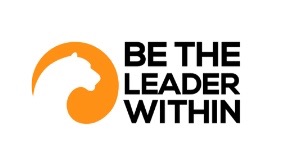Emotional Intelligence Test – Open HereHow high is your EI?
How emotionally intelligent are you?
Simply click on the link above and find out with the EI Test.

by admin
by admin
Have you ever received feedback during your last performance review or when you moved to your new senior leadership role that you “need to be more strategic,”? Then you know how frustrating it can feel especially, when you are given the definition of a word by using the same word. It just isn’t helpful.

I recall one of my first coaching clients who came to me with her goals – one defined as being more strategic rather than reactive in her new executive role. As a Vice President, heading up operations of several countries, she asked me to help her to become a strategic leader.
In order to help Laura with her goal, I chose to pinpoint and question several areas of her development such as making and committing to her actual thinking time, building up her network, researching and learning about the trends within and outside of the organisation etc.
However, despite the fact that this methodology appeared to be as an effective method at first, looking back I understand now that this type of methodology does not always necessary leave a long lasting positive effect in the human behavior. Basically I was working on changing her behaviour prior changing her automatic thoughts in her mindset. Often the feedback during our sessions was: I don’t have time for this, I just have so much work, I am super busy etc.
Here is a guidance based on my knowledge and experience on how you can become more strategic in your new or current role in the long run.
When we know that our results are deriving from our habitual behaviors and our actions are caused by our thoughs and feelings, then programming our new mindset with NEW STRATEGIC THOUGHTS eventually bears strategic actions. What are some examples of such strategic thinking and strategic beliefs?
You might be asking, is that it? All I have to do is to integrate these sentences into my (subconscious) mind on autopilot and I will become a strategic thinker or strategic leader?
YES! If these thoughts become a part of who you are (your very deep inner mind), naturally with a little effort you will start to :
These behaviours and many others will become a part of your regular working habits, because your behaviour will be triggered by your new beliefs (strategic thoughts) on autopilot.
How quickly will it happen? This depends on your current “programming” you are presently as a leader operating from. How knowledgeable and experienced you already are as well as what unconscious bias you hold, will be either contributing to – or delaying your new strategic mindset. That is why it is so important to work with a Coach.
Think of it as a tree, which grows by its seed being planted in the soil. This seed initially grows roots. These roots are like all terms, information, data, networks and skills you need to learn and have in order to become strong and stable. In other words, the tree can eventually grow above the surface and bear fruits (making strategic decisions, actions and changes).
If you are interested in knowing more and becoming a strategic thinker and strategic leader, please contact me on info@be-the-leader-within.com
by admin
While your IQ may have helped you to get to your current leadership role, it is your emotional intelligence that will get you promoted again and recognised for your ability to develop your team or organisation to a high performing one.
The good news? While we all must play the IQ cards we are dealt, Emotional Intelligence can be improved. There are many definitions and interpretations of Emotional Intelligence (EI). The basis of all definitions though is that it is related to human emotions and recognising their effect on human behaviors. The focus of this article is based on the American psychologist Daniel Goleman, who helped to popularize emotional intelligence in the corporate world and found the direct connection between the high performing leaders & teams and their high scores of Emotional Intelligence.
Emotional Intelligence (EI) is the ability to understand and manage your own emotions, and those of the people around you. People with a high degree of emotional intelligence know what they’re feeling, what their emotions mean, and how these emotions can affect other people. It is a choice and a discipline, which is required for truly outstanding performance. In the book Emotional Intelligence 2.0, Travis Bradberry and Jean Greaves explain:
For leaders, having emotional intelligence is essential for success. After all, who is more likely to succeed – a leader who shouts at his team when he’s under stress, intentionally manipulates others for his own interest or a leader who stays in control, calmly assesses any situation and understand the motivators of his/her team and their potential to excell in their performance?

According to Daniel Goleman, there are five key elements to it:
The more that you, as a leader, manage each of these areas, the higher your emotional intelligence. Before looking at each element in more detail and examine how you can grow as a leader, test your emotional intelligence with our Emotional Intelligence Test. By testing and knowing yourself better, it helps you to bucket your strengths and weaknesses. It is not that such test is perfect measure or predictor, but it facilitates self-reflection, which leads to better self-awareness.
If you’re self-aware, you always know how you feel, and you know how your thoughts, emotions and your actions can affect the people around you. Being self-aware when you’re in a leadership position also means having a clear picture of your strengths and weaknesses, and it means behaving with humility.
So, what can you do to improve your self-awareness?
Keep a journal – Journals help you improve your self-awareness. If you spend just a few minutes each day writing down your thoughts, this can move you to a higher degree of self-awareness.
Slow down – When you experience anger or other strong emotions, slow down to examine why. Remember, no matter what the situation, you can always choose how you react to it. Once you learn how to manage your emotions whether at home or at work, it will help you understand what your emotions are telling you and get to the root of their cause.
Self-regulation leaders who regulate themselves effectively rarely verbally attack others, make rushed or emotional decisions, stereotype people, or compromise their values. Self-regulation is all about staying in control. This element of emotional intelligence, according to Goleman, also covers a leader’s flexibility and commitment to personal accountability.
So, how can you improve your ability to self-regulate?
Self-motivated leaders work consistently toward their goals, and they have extremely high standards for the quality of their work.
How can you improve your motivation?
For leaders, having empathy is critical to managing a successful team or organization. Leaders with empathy have the ability to put themselves in someone else’s situation. They help develop the people on their team, challenge others who are acting unfairly, give constructive feedback, and listen to those who need it. If you want to earn the respect and loyalty of your team, then show them you care by being empathic. How can you improve your empathy?
Leaders who do well in the social skills element of emotional intelligence are great communicators. They’re just as open to hearing bad news as good news, and they’re expert at getting their team to support them and be excited about a new mission or project. They have the ability to connect with others in ways that help them feel understood and supported.
Leaders who have good social skills are also good at managing change and resolving conflicts diplomatically. They’re rarely satisfied with leaving things as they are, but they don’t sit back and make everyone else do the work: they set an example with their own behavior.
So, how can you build social/relationship skills?
If you are interested in developing your emotional intelligence and ultimately improving your high performance leadership, do not hesitate to contact me
by admin
Learn how creating one simple sentence can put you, and your organisation, on a more positive path!
As the new year approached, you are ready for change in your life, and business, and not exactly sure where to start. Affirmations are a simple, yet powerful, technique the best coaches use to help clients transform their lives.
An affirmation is a statement focusing on a quality or behavior that you want to experience in your life or business.
Where your attention goes energy flows. Focusing on the affirmation multiple times a day teaches you a new way of being. It also supports you in breaking through any limiting beliefs that are holding you back from living your most fulfilling life.
Less than two years ago I was working on finding my inner voice. The affirmation I focused on was, “I am listening to, loving, and trusting my inner voice.” As of that point I was able to develop my emotional intelligence to a very high level and very often I can read people’s energetic field through their subconscious mind.
There is no formula of how long it will take and what may come of your affirmation. Be patient and gentle with yourself through the change. Over time you will start to see a shift in yourself and ultimately, the world around you. As Napoleon Hill says: “Whatever the mind can conceive and believe, it can achieve, regardless how many times you have to fail.”
Your mind is a magnet and attracts whatever corresponds to its ruling state. Whatever you imagine in your mind, whatever you expect and think about, will tend to bring into your live the things and conditions that are in harmony with. Here is how to create your own affirmation:
1.Pick a quality or behavior you wish to experience in your life.
If you are getting results that you don’t want, then recognize what kind of behavior is producing this unwanted result and describe the polar opposite of this behavior and result you want in details.
2.Create a specific statement using the present tense, positive verbiage, and exciting language.
PRESENT TENSE: Acting as if it is already happening creates the energy you need to make it a reality.
POSITIVE VERBIAGE: This ensures you are focusing on what you really want to manifest instead of what you want to avoid. Adding gratitude in the sentence puts your body in a positive vibration and in the harmony of what you want.
EXCITING LANGUAGE: This builds the energy behind it and encourages you to stick with it.
Other affirmation examples for leadership include:
3. Repeat. Repeat. Repeat.
Review your affirmation multiple times a day. Add a daily reminder to your phone. Put a sticky note in your car or at your desk. Bring out your creative side and make artwork you can hang in your house. Do you have doubts? Think big and do it! It is a test of self-discipline as well as an effective exercise for creating a positive mindset. At the end you are worthy of experiencing the life you want to live!
4. Bring affirmations to your organisation.
As a leader I encourage you to share your affirmation with your organisation and teams. Some may think this is showing weakness admitting there is even something to change. I see it as demonstrating strength by showing your organization you are continually working on being the best leader, and ultimately person, possible. It will inspire them to do the same.
You can even encourage your organization to focus on their personal growth by asking everyone to create affirmations. Make affirmations part of your culture by asking people to post it at their desk, add it to their e-mail signature, or start meetings with sharing affirmations to create an environment that supports everyone’s growth. At the end of the day that is why we are all here. To grow into the best we possibly can be and make this world an even better place!
